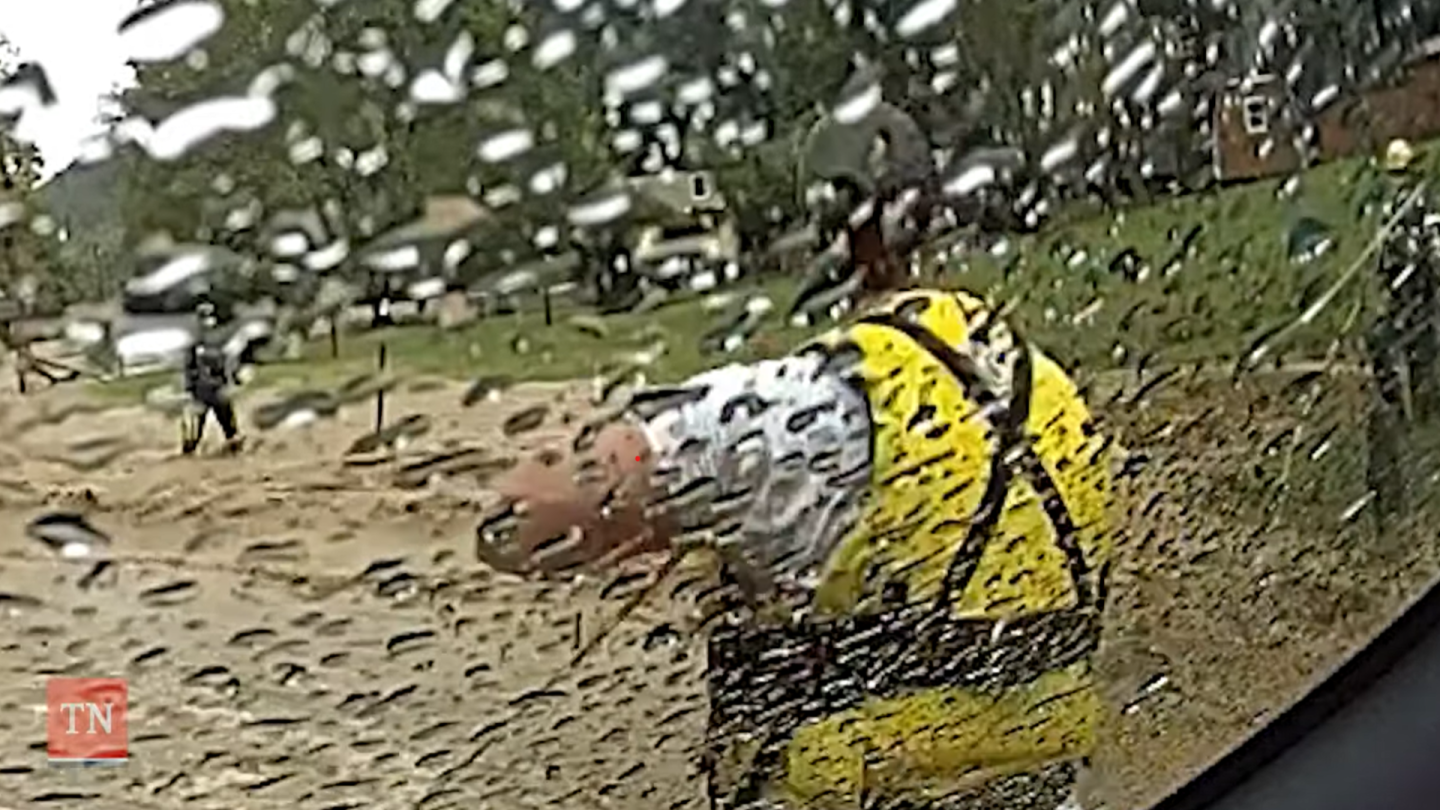Download this week’s episode on Apple Podcasts, Amazon Music, Spotify or via RSS feed, and watch the video version on Police1’s YouTube channel.
Crime scene investigation isn’t just the stuff of primetime TV — it’s grueling, unpredictable work that demands a tough stomach, a sharp eye and a commitment to truth. In this episode of the Policing Matters podcast, host Jim Dudley sits down with Gabrielle Wimer, a forensic specialist for the City of Ventura, California, and host of the podcast, The Walls Do Talk. With over 13 years of crime scene experience, Gabrielle offers a behind-the-scenes look at what it’s like to walk into the aftermath of violence and begin piecing together what happened — and who’s responsible.
In their conversation, Jim and Gabrielle dive into everything from her early fascination with dead bodies (spoiler: she fainted the first time she saw one) to the cutting-edge tech that helps her recreate crime scenes with stunning accuracy. They explore one particularly brutal case that hinged on a tiny speck of blood she spotted — evidence no one else saw. Gabrielle also opens up about what inspired her to launch her podcast, the surprising support she’s received from her department, and why she believes more young investigators need to hear the truth behind the glamorized CSI image.
Tune in to discover:
- What really happens the first time you see a dead body (and why Gabrielle hit the floor)
- How crime scene tech like drones and 3D scanners are changing courtroom testimony
- The story behind Gabrielle’s podcast The Walls Do Talk — and how she got her department’s blessing
- Why slowing down and spotting a single drop of blood can break open a murder case
- What forensic specialists really deal with at scenes that involve hazmat, hoarders and hidden evidence
About our sponsor
This episode of the Policing Matters podcast is sponsored by OfficerStore. Learn more about getting the gear you need at prices you can afford by visiting OfficerStore.com.
About our guest
Gabrielle Wimer is a Forensic Specialist working for the City of Ventura. Gabrielle has worked in Crime Scene Investigation for 14 years and has been a Latent Print Examiner for the past six years. She is an IAI-certified Crime Scene Analyst. Gabrielle received her Bachelor of Science in Criminal Justice from San Diego State University and a degree in Forensic Technology from Grossmont College. She is an active member of the IAI and CSDIAI. She serves on the Ventura Police Department Peer Support Team and provides Crime Scene Investigation training to the sworn personnel. Gabrielle actively volunteers in the community and partakes in the Ventura Police Department’s Community Academy. She has been featured on the Today Show for her help in solving a 35-year-old cold case homicide. Gabrielle is the founder of The Walls Do Talk, a true crime-inspired Podcast.
5 key takeaways:
- Crime scenes aren’t glamorous — just gritty: From overwhelming odors to navigating bodily fluids and hazardous materials, real-world forensic work is messy and mentally taxing.
- Tech is transforming crime scene analysis: Tools like drones and 3D scanners help create virtual walkthroughs, improve accuracy and stand up under legal scrutiny.
- Attention to detail can make or break a case: Gabrielle once solved a murder based on a sesame seed–sized drop of blood missed by others at the scene.
- Experience matters — but so does empathy: Understanding trauma, working with grieving families and being respectful of the dead are just as critical as collecting evidence.
- Storytelling builds connection and credibility: Through The Walls Do Talk podcast, Gabrielle not only educates and inspires future forensic pros, but also helps humanize the field for the public.
Show resources:
- The Walls Do Talk podcast
- International Crime Scene Investigators Association
- International Association for Identification
- 5 things to know about Locard’s Exchange Principle
- Subscribe to Police1’s Investigations Newsletter
Rate and review the Policing Matters podcast
Enjoying the show? Please take a moment to rate and review us on Apple Podcasts. Contact the Policing Matters team at policingmatters@police1.com to share ideas, suggestions and feedback.













